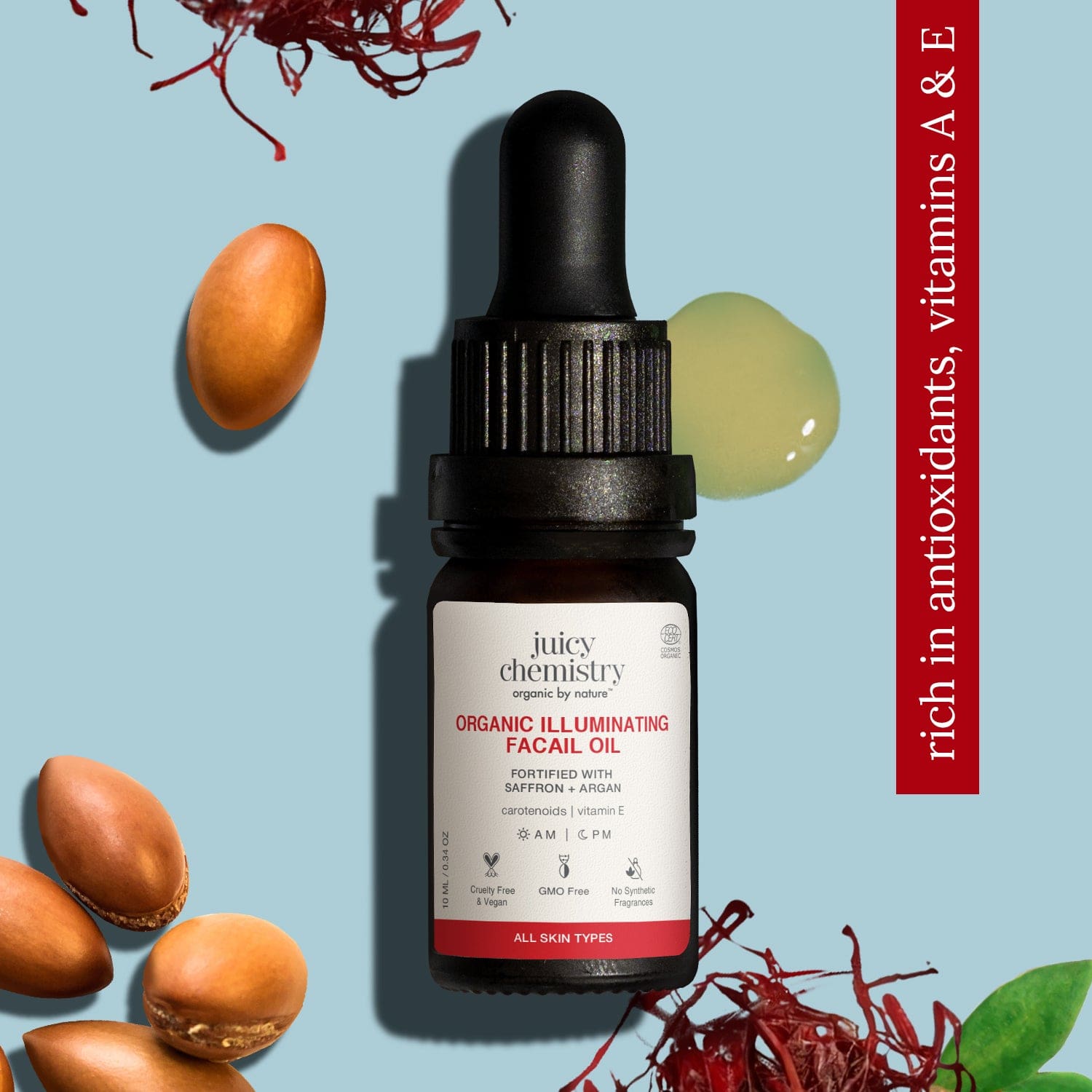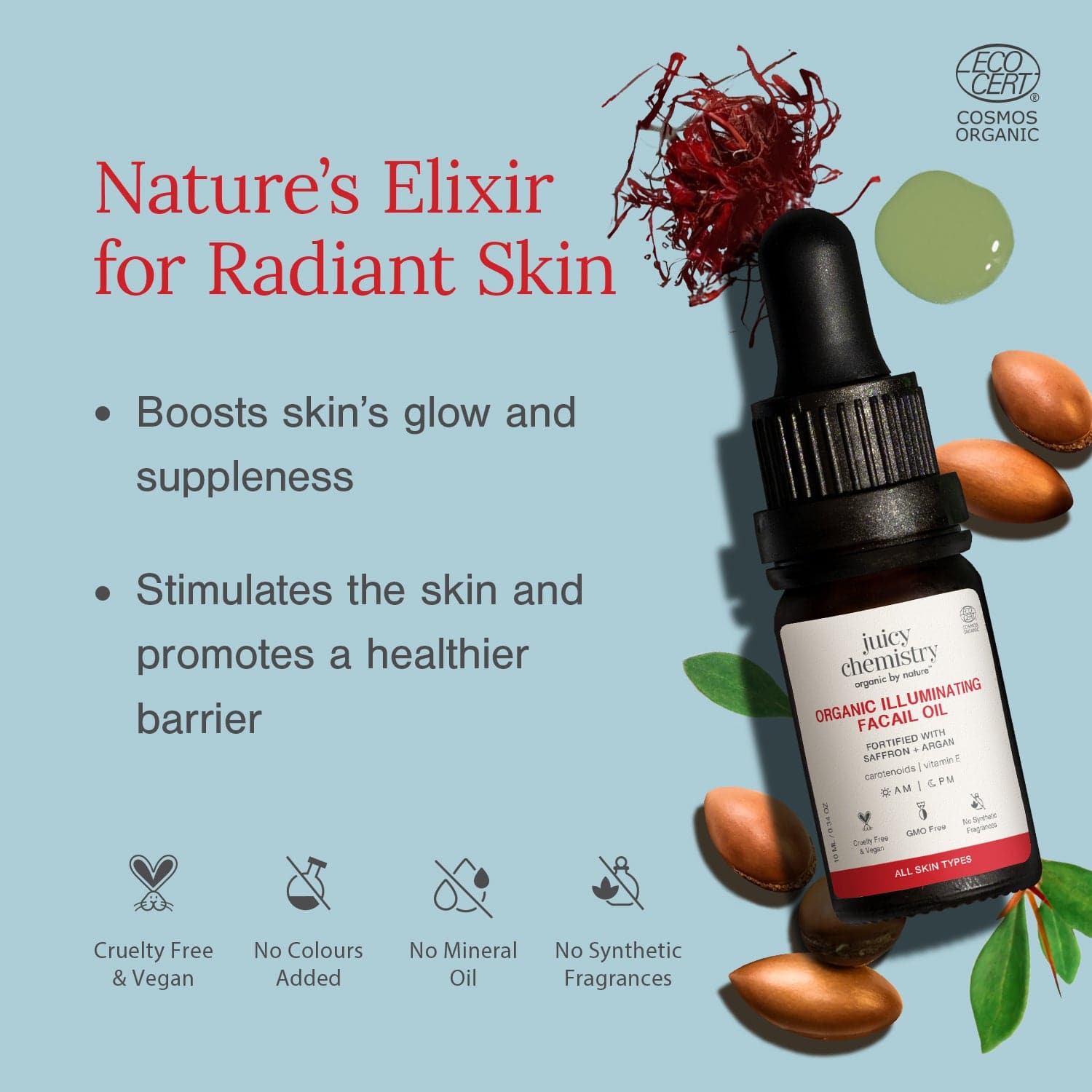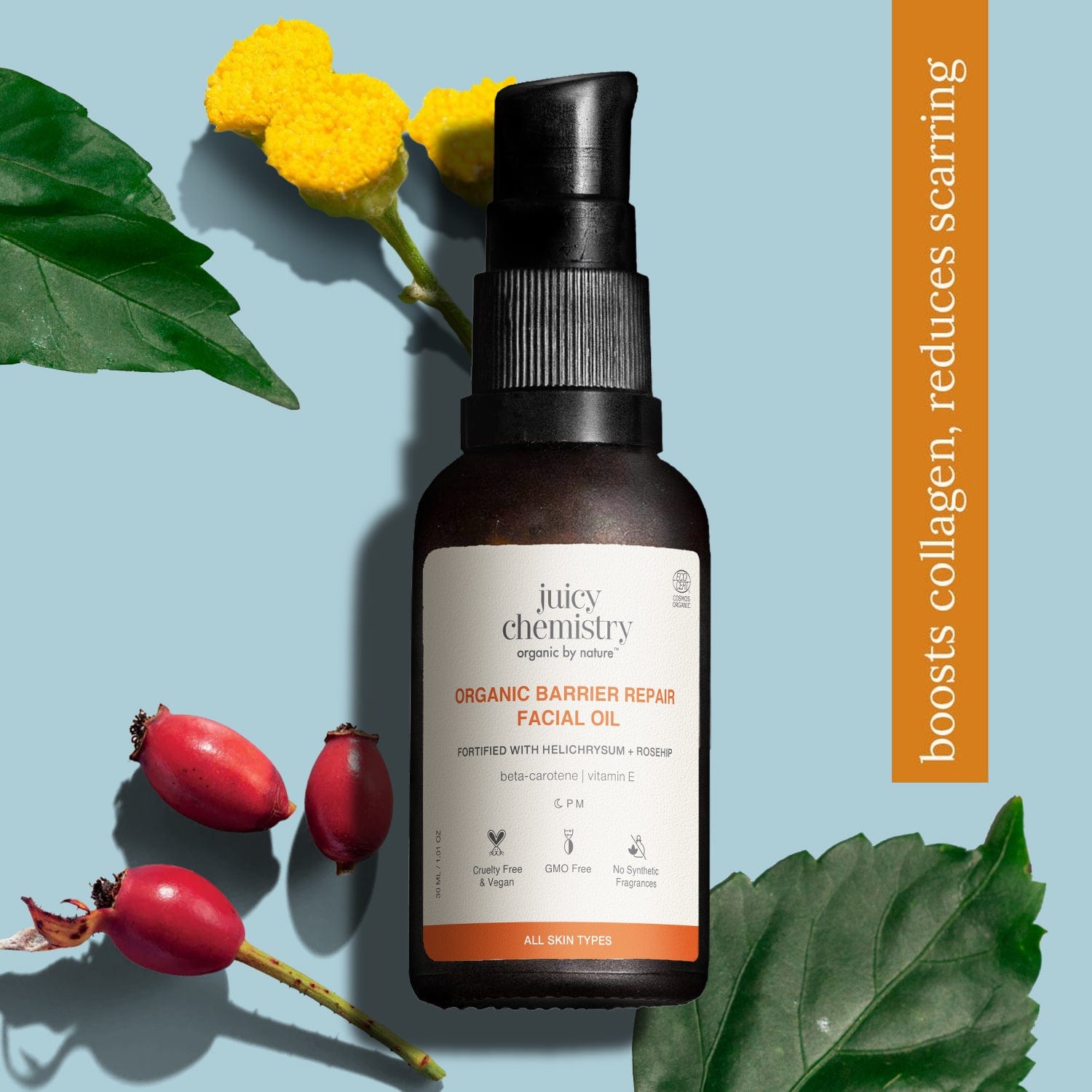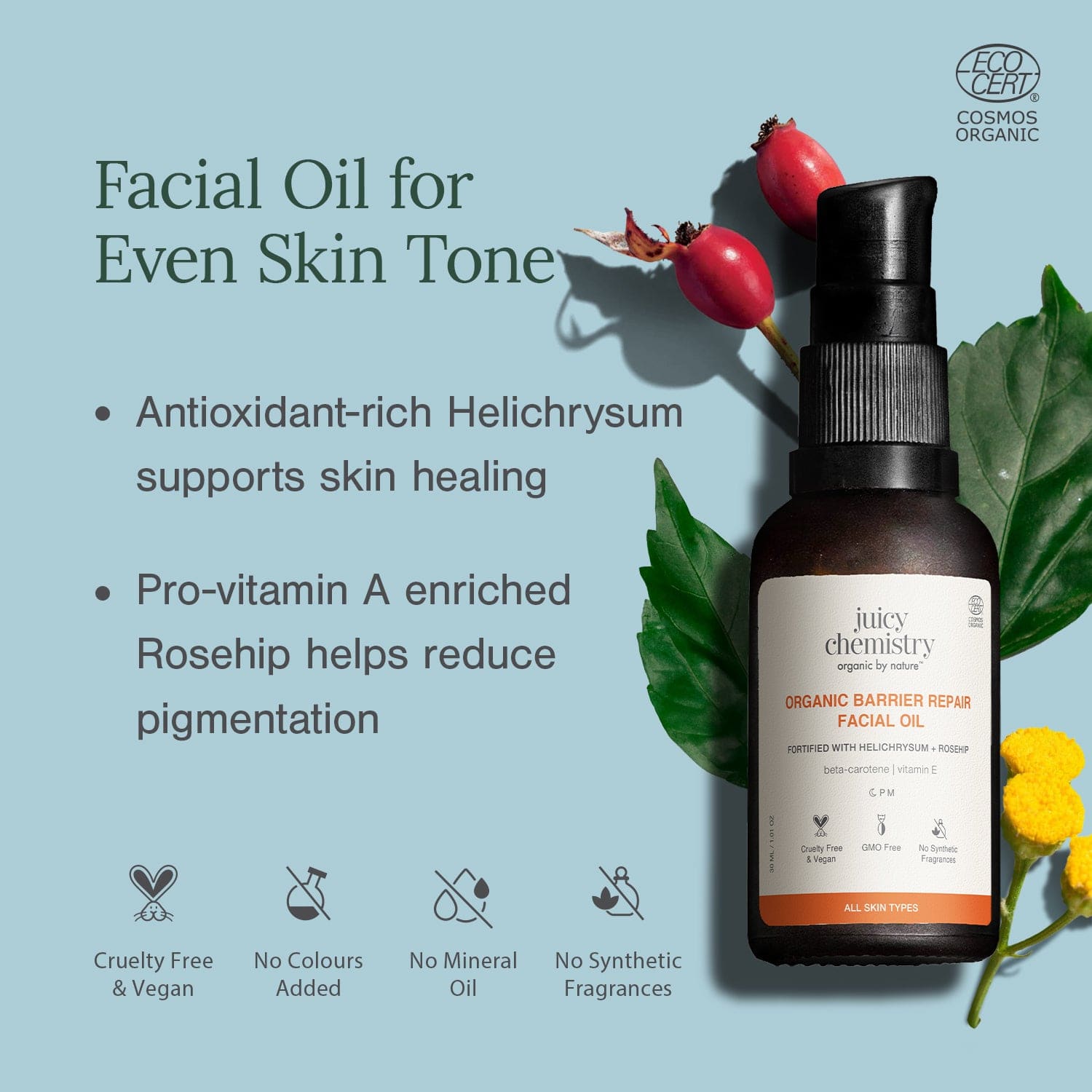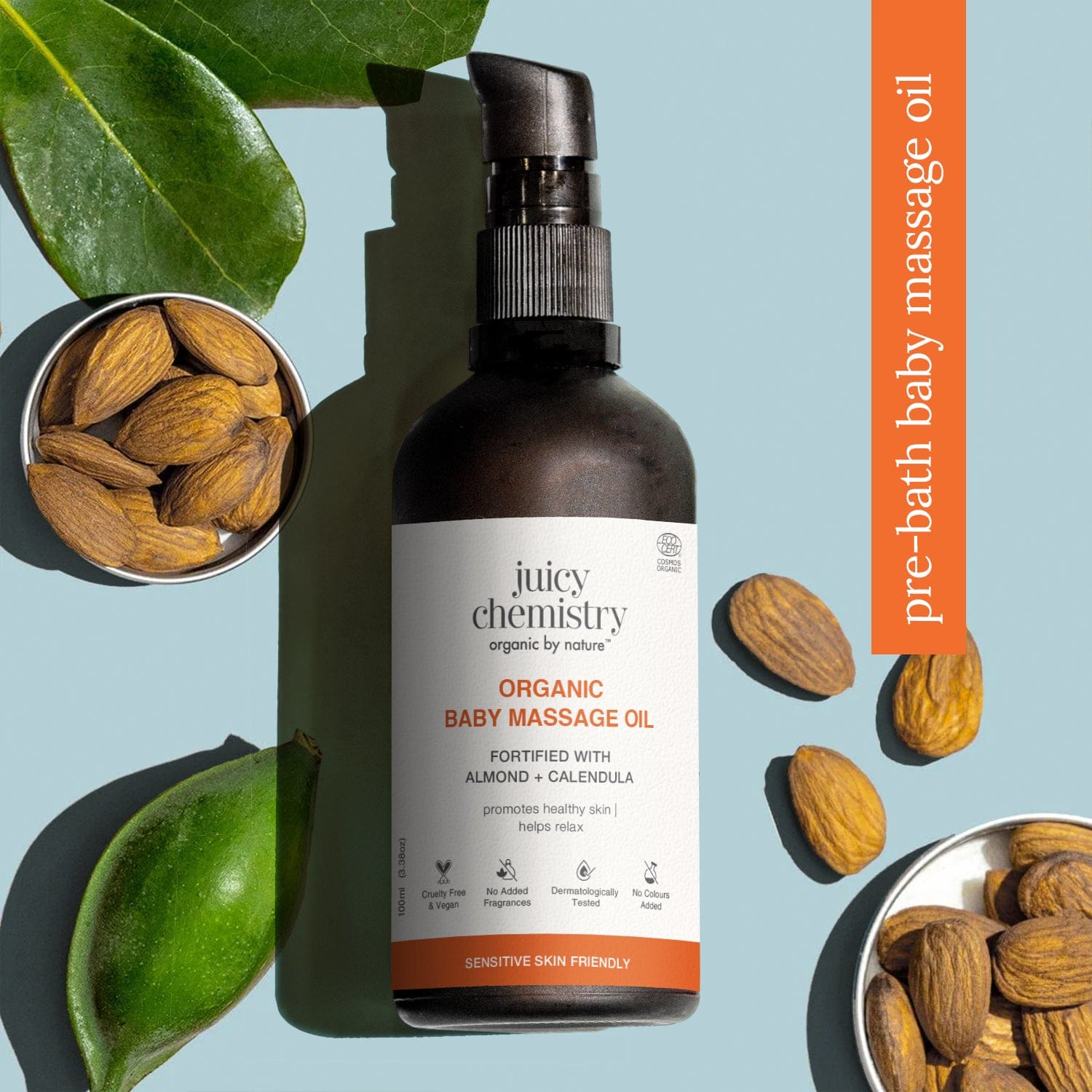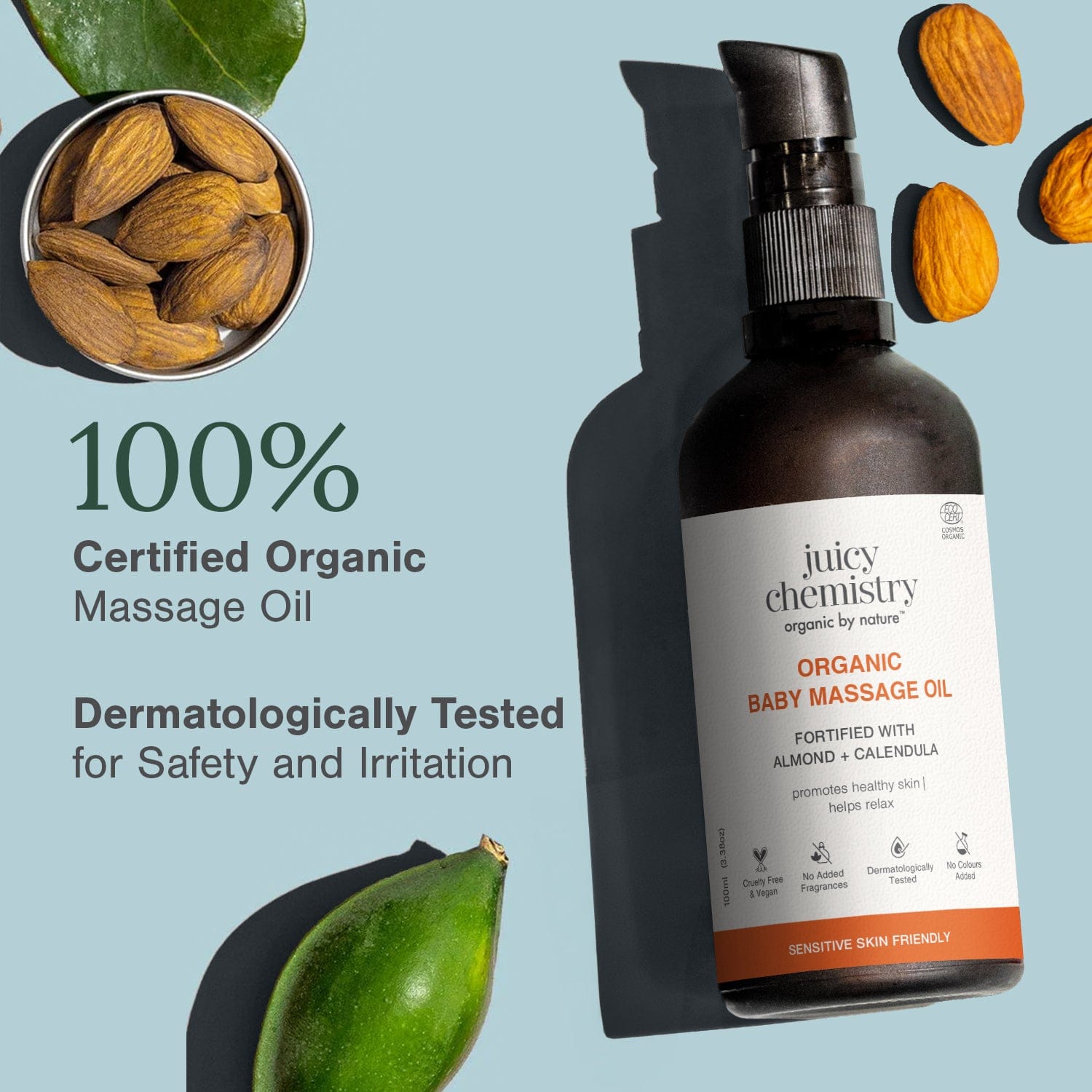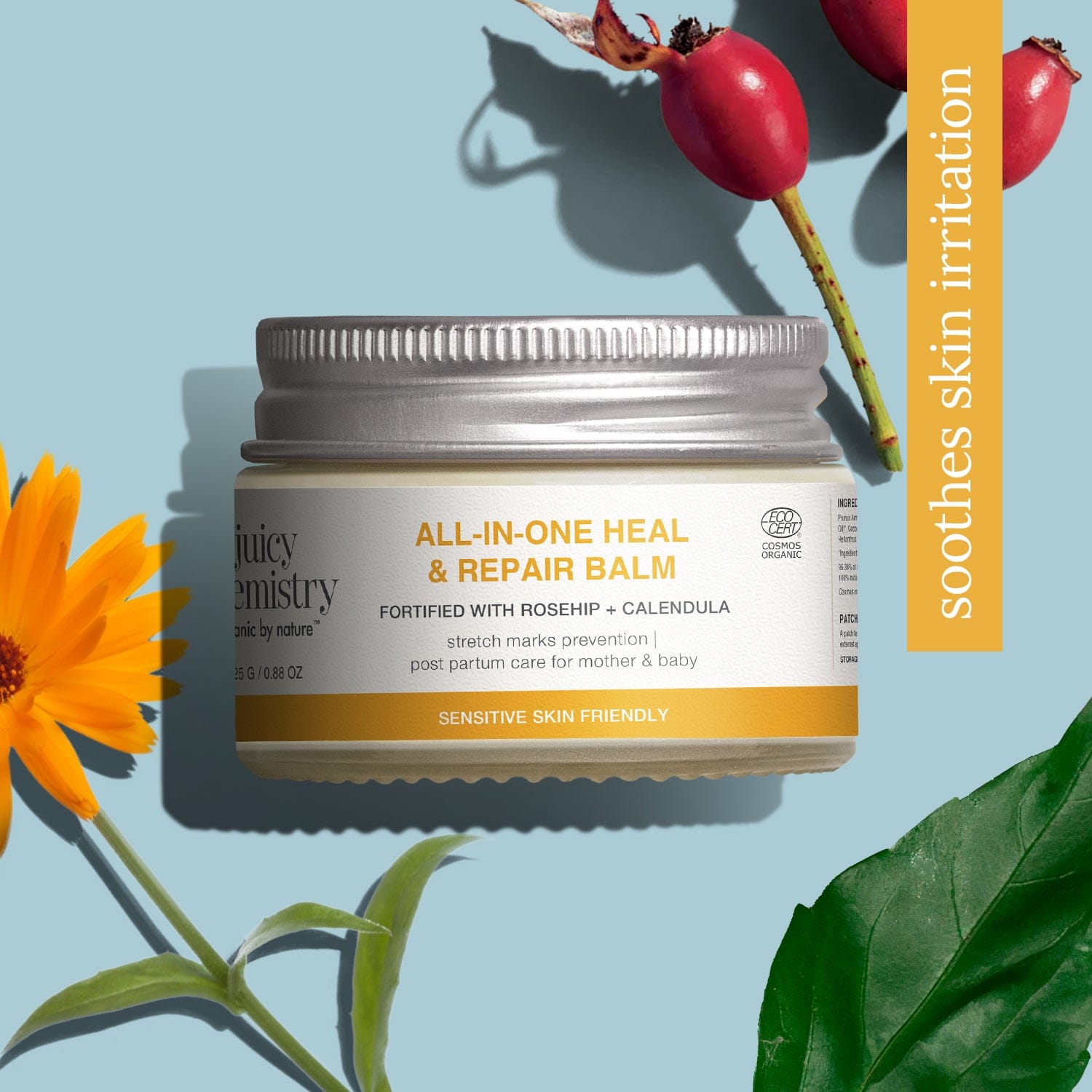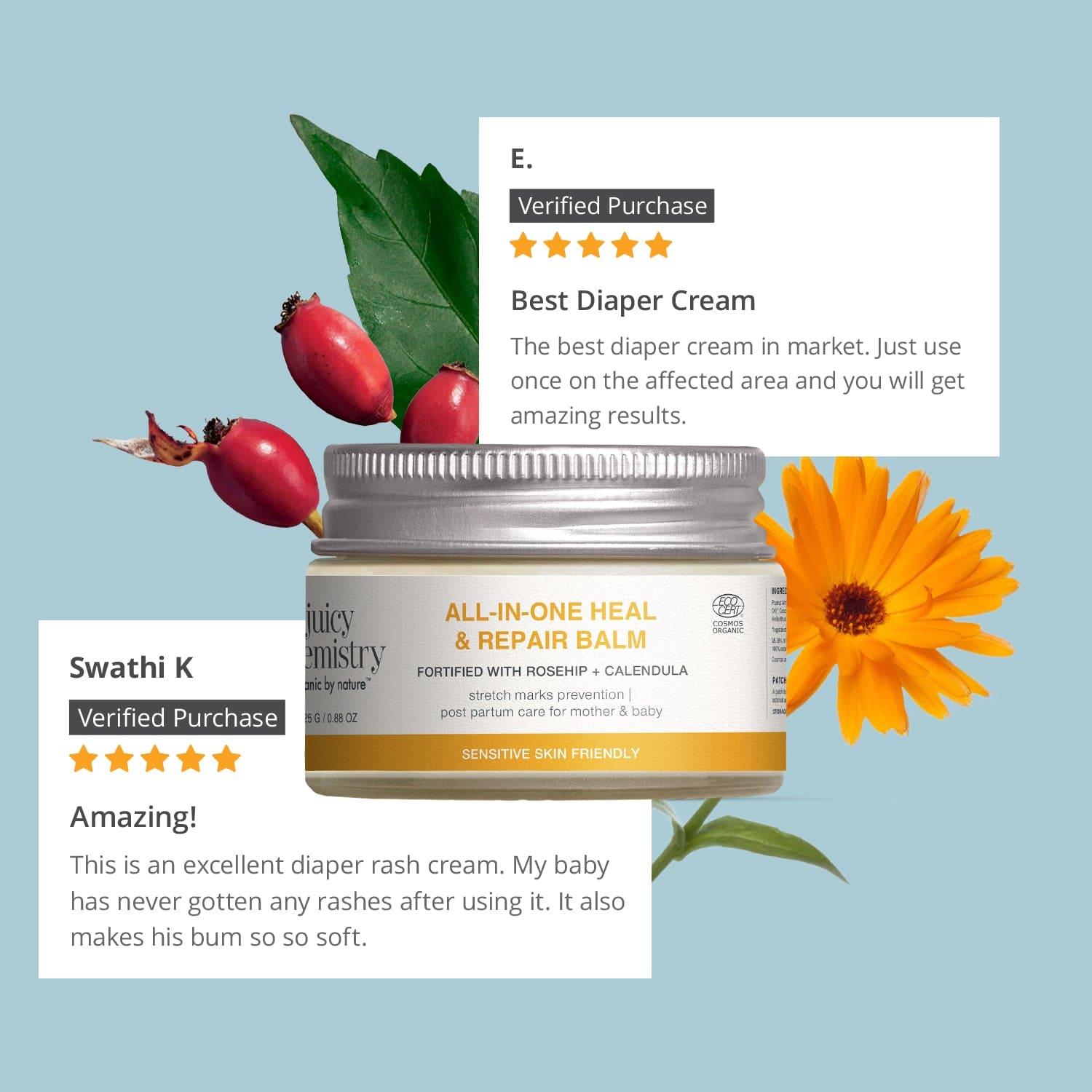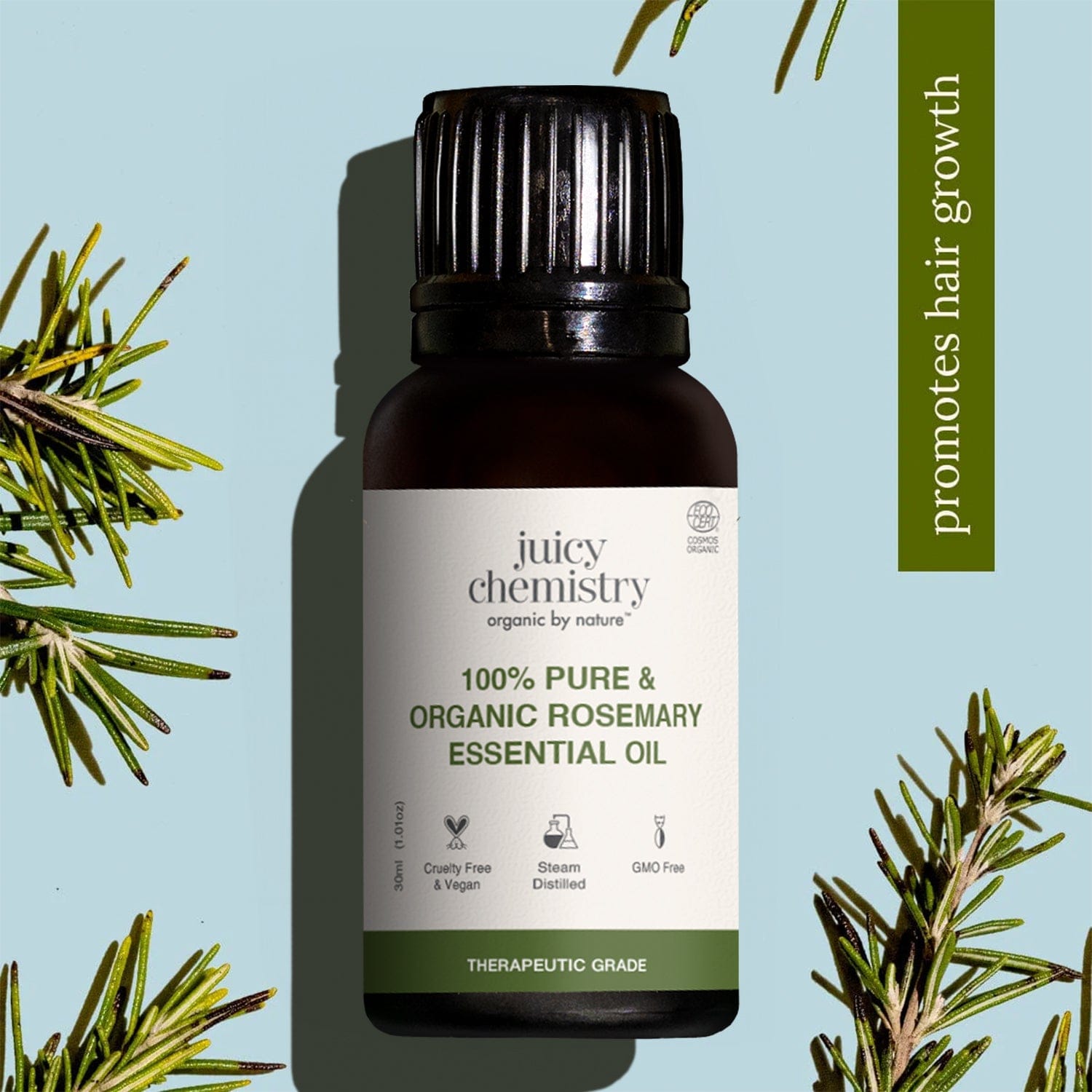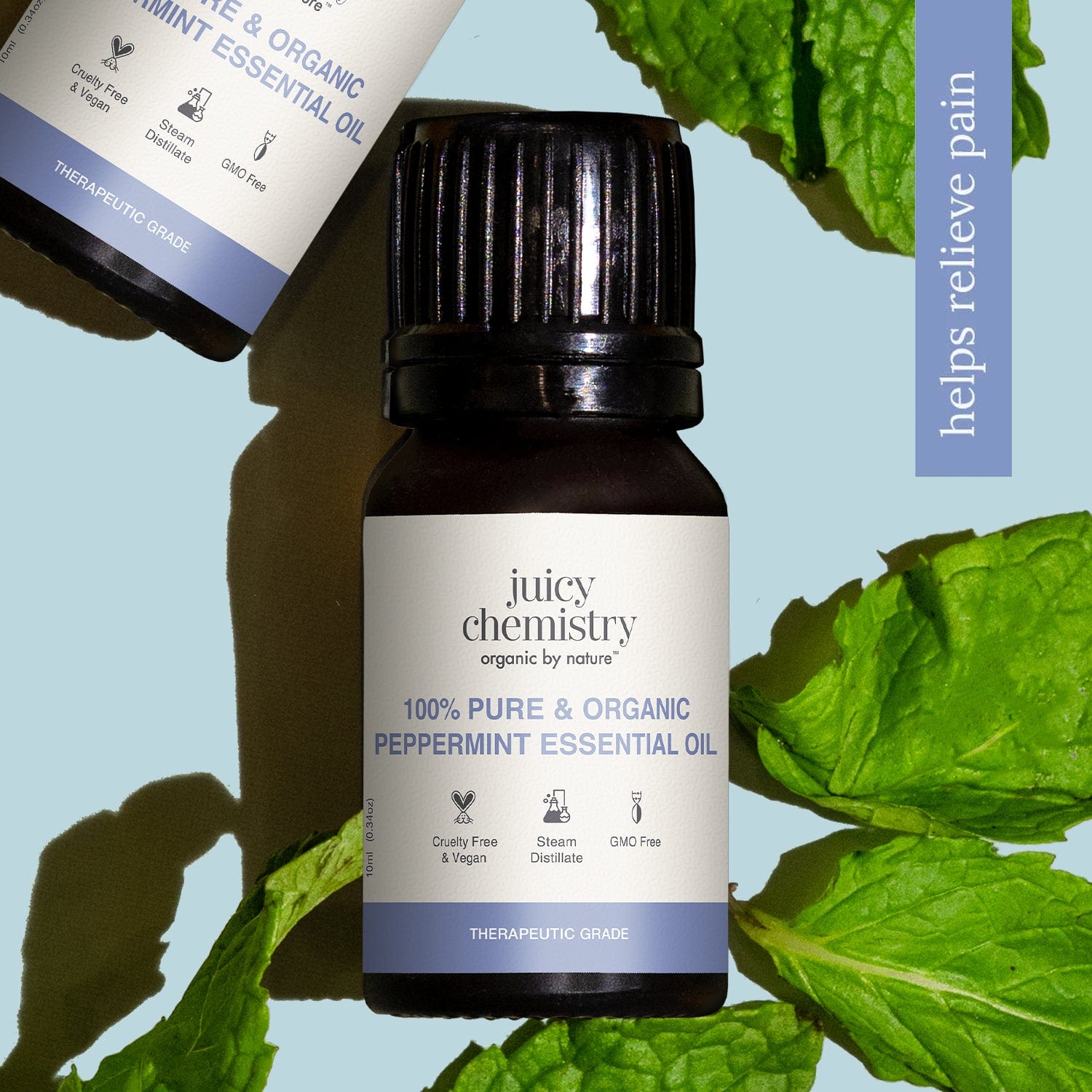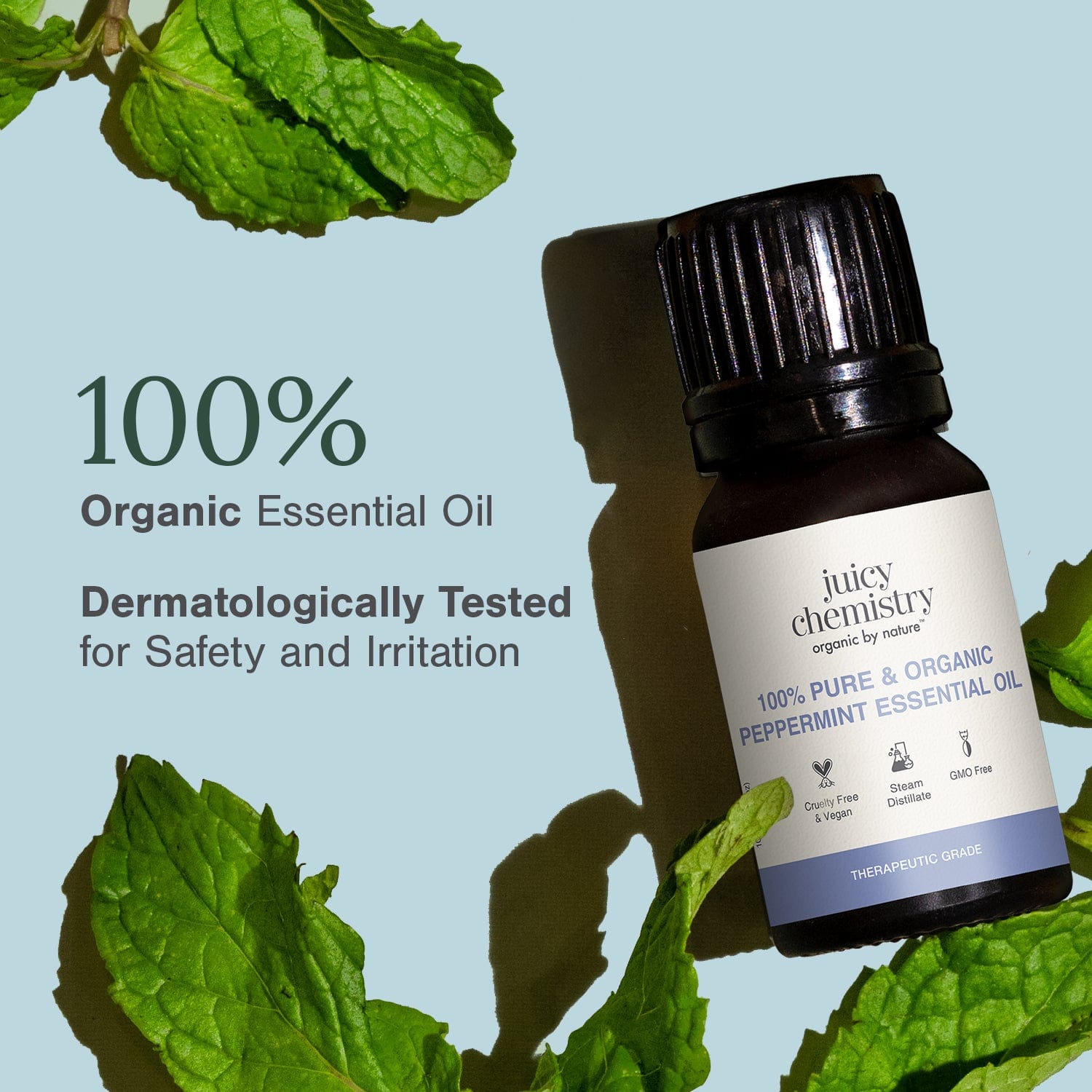Tap the Myriad benefits of Tea Tree Essential Oil for Your skin
June 22, 2021Tea tree essential oil stands out as one of the most sought-after components in both skincare and hair care formulations. Its widespread appeal can be linked to the numerous advantages it provides. This oil is derived from the leaves and terminal branches of the Melaleuca Alternifolia tree, which is indigenous to Australia. It typically appears as a pale yellow to clear liquid and has a distinctive camphor-like fragrance.
Generally, tea tree essential oil is obtained through the process of steam distillation, which is the most traditional and oldest method for extracting essential oils. The extraction utilizes the leaves and terminal branches of Melaleuca Alternifolia.
The steam distillation process employs a controlled steam current at specific temperatures to separate two compounds based on their differing temperature sensitivities. This method not only allows for the isolation of compounds at lower temperatures compared to simple distillation but also prevents the breakdown of compounds that can occur with higher temperatures.
Tea Tree Oil for Acne
Tea tree essential oil provides a range of benefits for skincare. This essential oil possesses antibacterial, antifungal, and anti-inflammatory properties, making it particularly effective in treating mild to moderate acne with consistent use due to these beneficial characteristics.
The composition of tea tree essential oil includes a complex blend of hydrocarbons and terpenes, totaling around 100 different components. Among these, we will focus on the primary constituents: 1,6-cineole and 1-terpinen-4-ol.
- 1-terpinen-4-ol is a plant-derived metabolite known for its antibacterial, antioxidant, and anti-inflammatory properties.
- 1,6-cineole is a naturally occurring cyclic ether and monoterpenoid that helps alleviate inflammation and pain when applied to the skin.
How to Use Tea Tree Oil for Acne?
Tea tree oil should be utilized as a spot treatment by diluting it in a carrier oil such as Cold Pressed Hemp Seed Oil (ideal for oily skin) or Cold Pressed Argan Oil (suitable for dry skin).
- Create a 1% diluted mixture of tea tree oil with one of the aforementioned carrier oils.
- Use a cotton swab to dip into the mixture.
- Apply it directly to the acne as a targeted treatment.
- Allow it to sit for half an hour or overnight.
- Rinse off with lukewarm water or your preferred facial cleanser.
Before using tea tree essential oil for acne, please adhere to the following guidelines:
- Conduct a patch test prior to application.
- Ensure the essential oil is diluted to a 1% concentration; for instance, if you use 1ml of tea tree essential oil, mix it with 99ml of carrier oil.
- Avoid ingesting tea tree essential oil, as it can be extremely harmful if swallowed.
- Keep it out of reach of children.
- Store the oil in a dark, cool location, away from sunlight.
When applied topically in diluted form to mild to moderate acne, tea tree oil provides the following advantages:
- It can effectively eliminate the bacteria responsible for acne while safeguarding the skin from build-ups that lead to breakouts.
- The appearance of acne lesions is diminished, resulting in a clearer overall complexion.
- The anti-inflammatory properties of tea tree essential oil help alleviate both acne-related inflammation and discomfort.
- It can also assist in reducing the swelling and redness associated with acne.
Additional Benefits of Tea Tree Essential Oil
Tea tree oil is also advantageous for hair and scalp health. However, it is crucial not to apply undiluted tea tree essential oil for treating any of the following conditions. Instead, opt for products that are formulated with tea tree oil to enjoy its benefits.
- Dandruff: The antifungal properties of tea tree oil make it an excellent option for managing dandruff caused by malassezia. Regular use may help inhibit the growth of this fungus. [study]
- Head Lice: Tea tree essential oil is reported to effectively eliminate head lice with consistent application. [study]
- Indirect Support for Hair Growth: While tea tree essential oil may not directly promote hair growth, it can improve other hair conditions like dandruff, which may subsequently support hair growth.
- Athlete's Foot: Tea tree essential oil can help alleviate the symptoms associated with athlete's foot, potentially reducing inflammation and itching.
How to Choose the Best Tea Tree Oil?
Selecting a high-quality tea tree essential oil is just as important as knowing how to use it. Consider the following criteria to find the best tea tree oil:
- It should contain only one ingredient: Melaleuca Alternifolia.
- No other ingredients should be included apart from the one mentioned above.
- It must be extracted using the steam distillation method.
- The oil should be packaged in an amber-colored glass bottle.
- Look for any certifications that the brand may offer.
Juicy Chemistry provides a range of skincare products formulated with Australian Tea Tree Essential Oil (Certified organic by Ecocert (France) in accordance with COSMOS standards)
- Juicy Chemistry Hemp, Tea Tree & Neem Face Wash - a cleanser designed for oily skin that aids in managing active acne and promoting an even skin tone.
- Juicy Chemistry Tea Tree, Neem, and Rosemary Organic Cold-Pressed Soap - this versatile soap bar can serve as both a cleanser for acne-prone skin and a disinfectant hand wash.
- Juicy Chemistry Frankincense & Hemp Facial Oil - This facial oil acts as a spot treatment, helping to heal acne and diminish the appearance of blemishes.
- Juicy Chemistry Australian Tea Tree & Basil Water Toner - This toner helps prevent acne and calms skin irritations.
Frequently Asked Questions About Tea Tree Essential Oil
-
Can you apply tea tree oil directly to your skin?
No, it must be diluted before applying to the skin. Mix 1% of tea tree essential oil with 99% of a carrier oil before use. -
How often should I use tea tree oil daily?
You can apply tea tree oil once a day, preferably at night, or use it as a wash-off treatment for one hour. If you are using products that contain tea tree oil, follow the instructions provided for those products. -
Is it safe to leave tea tree oil on my face overnight?
Yes, you can leave tea tree oil on your face overnight, provided you are not allergic to it and are using it in a diluted form. Rinse off with lukewarm water in the morning.
We hope you find this guide on using tea tree oil for acne helpful.
References
https://www.researchgate.net/publication/350049118_Tea_Tree_Oil_Uses_And_Its_Application https://www.researchgate.net/publication/26547176_Determining_the_Antimicrobial_Actions_of_Tea_Tree_Oil www.newdirectionsaromatics.com/blog/articles/how-essential-oils-are-made.amp https://www.ncbi.nlm.nih.gov/pmc/articles/PMC3480584/

